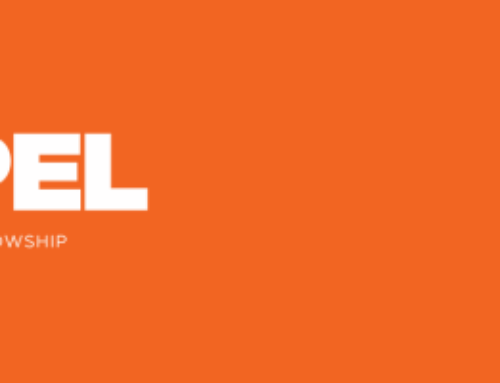The first cohort of the Leaders Empowering Educational Dreams (LEED) fellows debuted their capstone projects, encompassing the fellows’ lived experiences, professional expertise, and personal passion for improving public education in our community. LEED fellows collaborated over an 18-month period, with six in-person sessions dedicated to learning about movements, people, and organizations that advanced sweeping, system-wide change, and how they can take those lessons and apply them to their own community involvement and how they envision impacting our education systems. Paired with coaching opportunities and time to develop their projects, the LEED fellows emerged ready for next steps for action to impact education in our community.
Explore their projects below!
 Hannah Fraser and Ryley Dacome
Hannah Fraser and Ryley Dacome
Hannah and Ryley are both longtime events, marketing, and media agency leaders; they also have a deep sense of community involvement and ensuring schools and nonprofits have the tools they need for enrollment, marketing, and brand building. Their project expands their organization’s existing pro-bono program to schools and education-based nonprofits to bolster brand presence, media, video, and other public engagement strategies for long-term success.
Under this expansion, Hannah and Ryley will work with a nonprofit and a school each quarter, establishing needs and creating materials. They will review what the organizations have in their inventory, review challenges and opportunities, and will offer services including videography, graphic design, logo creation/rebranding, testimonials, highlight videos, and social content, to help organizations maximize their presence, gain awareness, and move the community to action.

Shelly Kopinski
Shelly has worked with learners of all ages throughout her career in championing Nevada’s outdoor spaces, and her project reflects her dedication to ensuring learning experiences are available to students with diverse needs. Her project addresses three key issues facing educators who want to incorporate outdoor education into their classrooms: ensuring educators have the information necessary to execute outdoor experiences (like field trips), particularly for students with diverse needs; students with diverse learning needs being less likely to have outdoor learning experiences incorporated into their school year; and trail and outdoor space accessibility for students with diverse learning needs.
Shelly is proposing to introduce a digital hub of trail information, tools for educators to facilitate outdoor experiences for students with diverse needs, and leveraging current collaborations with community and education groups and organizations to ensure diverse learners and educators have the tools they need to introduce and incorporate outdoor experiences into their learning.

Michelle St. Angelo
Michelle’s wealth of experience in health and wellness, as well as public relations and communications, led her to explore issues around student mental health and upticks in school safety incidents, and the role they play in academic decline, student engagement, and disciplinary action, as well as effective, easily incorporated ideas that could have a lasting and immediate impact on students and educators. Her solution proposes using birdsong in learning environments. Birdsong has been studied by the scientific community around its effect on environmental recovery and its relation to mental health, including stimulating cognition and improving focus; increasing feelings of relaxation and peace, decreasing impulsivity; and decreasing anxiety and depression.
Michelle proposes to pilot this approach in an education setting, building a website and a library of digital assets to support using birdsong at key points during a student’s day (arrival, lunch, between classes, etc.) over an extended period of time to impact student mental health and safety and have a lasting impact on student success.

Samantha King Powell
Samantha King Powell, as an attorney, has seen firsthand how fiscal management plays into a charter school’s success, future planning, and expansion efforts. School leaders have major responsibilities around fiscal management, oversight, and spending.
Samantha’s project proposes a charter school fiscal manual for Nevada, which would include best practices to equip school leaders with in-depth knowledge of fiscal best practices, maintain charter autonomy, protect the integrity of public funds, and foster student success through the establishment and maintenance of fiscally sound public charter schools in Nevada. The manual will help build skills, provide critical references and guidance, and support charter school leaders in their leadership journey.

